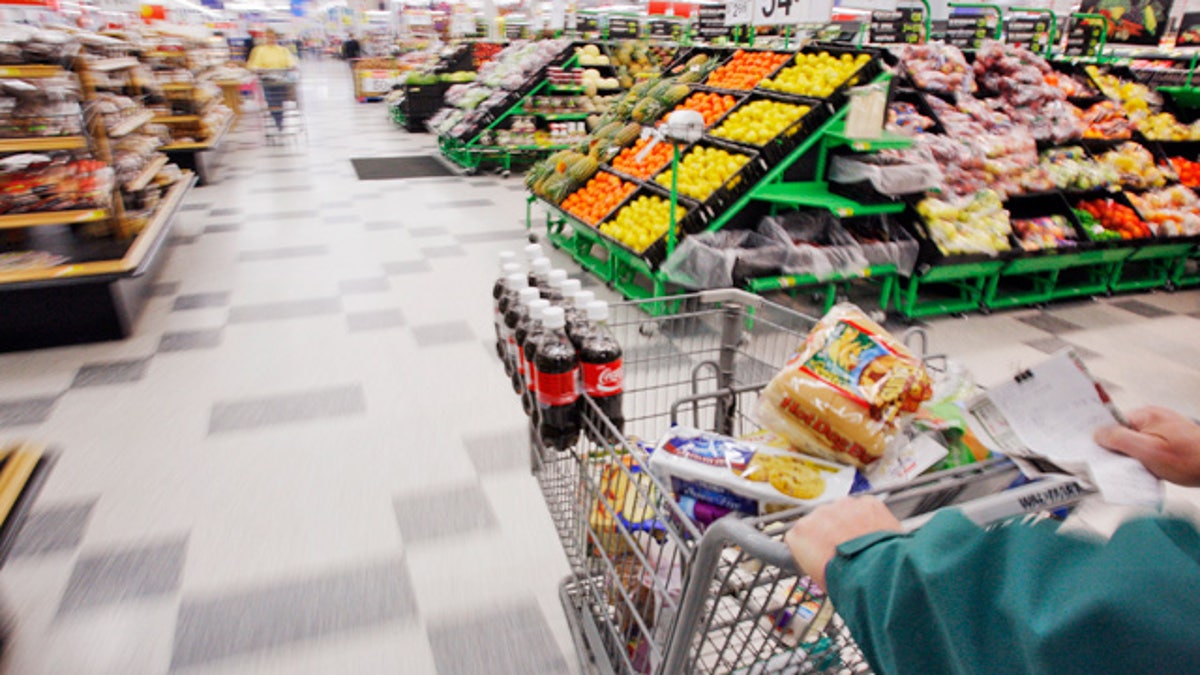
(Reuters)
You can buy all the protein and produce you want, but if you don’t handle it the right way at the supermarket, the healthiest food can still make you sick.
Follow these smart safety strategies to protect your groceries as soon as you pick them up to the moment you store them in your fridge.
1. Double-Bag Your Meat
The meat section in the supermarket may look sterile. But a Tennessee State University study says about 50 percent of poultry packages contain bacteria—including diarrhea-causing coliform and E. coli—on the outside.
Plop one of those packages in your cart, and you could spread the bugs to your other groceries.
Before reaching into the cooler to grab chicken breasts, stick your hand in a plastic produce bag, pick up the meat, and drop it in another empty produce bag.
“When you use a bag, the risk of cross-contamination goes down to zero,” said study author Sandria Godwin, Ph.D., R.D., L.D.M.
2. Wipe and Wait
Researchers at the University of Arizona find that 72 percent of shopping carts contain illness-inducing bacteria like E. coli.
Related: 10 Things That Are Germier Than a Toilet Seat
The bugs come from other shoppers who may have already had germs on their hands, or picked them up after touching contaminated food products.
Before you grab a cart, take an antibacterial wipe at the front of the supermarket. Swipe a wipe over the cart’s handle and wait 20 seconds for it to completely air dry.
This will knock out as much bacteria as possible, says Goodwin. “Touching the handle when it’s still wet can just smear the bacteria around or transfer them to your hands,” she says.
3. Pick This Produce
Grab the greens located at the front of the produce display case. Spinach is exposed to more fluorescent light up front than in the back, reports a study in the Journal of Agriculture and Food Chemistry.
Research shows spinach that’s exposed to artificial lighting stays fresher longer and produces up to 100 percent higher levels of nutrients including vitamins A, C, E, K, and folate.
Related: Why You Should Never Wash Ready-to-Eat Salad Greens
4. Clean Reusable Bags
You’re helping the environment by using BYO bags. Now do your stomach a solid by washing them, too.
Bacteria that may have hitched a ride from meat or produce can transfer to your bag and survive for more than 4 months, says Godwin.
Half of all reusable bags contain nasty bacteria that can lead to diarrhea and vomiting, say University of Arizona researchers. But 97 percent of people never clean their bags.
Related: Your Stomach Bug Survival Guide
Throw your bags in a hot wash with bleach between shopping trips.
5. Skip the Cold Cuts
Purdue University researchers find that 1 in 10 samples taken from deli foods and surfaces—such as the retail machines used to slice meat and cheese—contain the bacteria Listeria monocytogenes.
Listeria infections can cause flu-like symptoms like headache, stiff neck, fever, and meningitis. Listeria may also lead to miscarriages, stillbirths, and premature births in pregnant women.
“Between the open packages, knives, workers handling the meats, and the fact that they don’t always clean the machines between uses, there are just so many opportunities within the deli counter for bacteria to spread,” Godwin said.
Instead, opt for the vacuum-packed meat and cheese in the dairy aisle that are pre-packed in factories, which are less likely to become contaminated.
